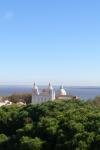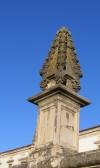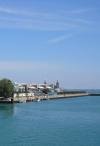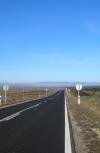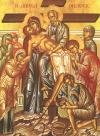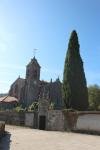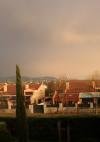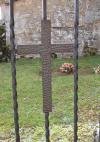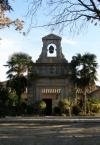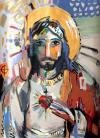
FEAST OF THE SACRED HEART – June 19 2020
Devotion to the Sacred Heart has very ancient origins. It has spread in the Church especially starting from the seventeenth century through the work of a French mystic, St. Margaret Mary Alacoque. Like all forms of popular piety, this too entered into crisis after the Vatican Council II. The traditional image—the one showing the Sacred Heart “on a throne of flames, radiant as the sun, with the adorable wound, surrounded by thorns and topped by a cross” is in conformity with the description given by St. Margaret Mary to whom He appeared.



